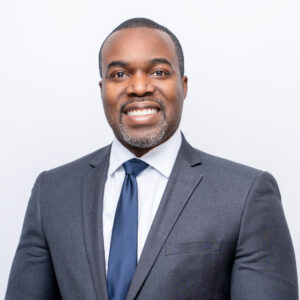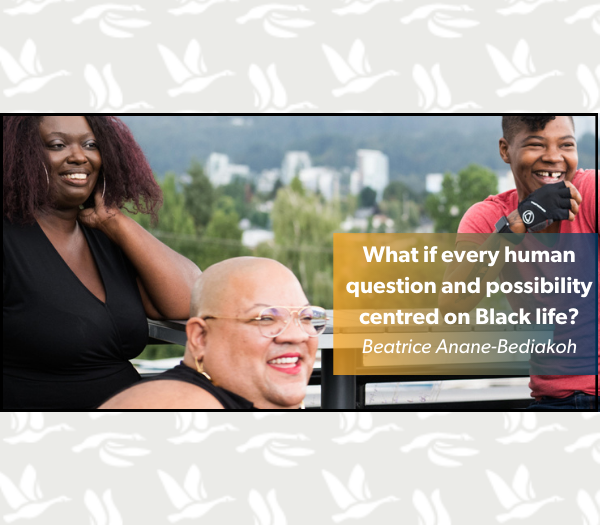CCEDNet turns 25 this year! And because generations are typically defined in 25-year periods, we are reflecting on the concept of generational movement. How does the wisdom of previous generation shape not only the present, but also the way we move into the next?
This question is especially alive during Black History Month. Community economic development (CED) in Canada and around the world has always been shaped by Black people. From historical credit associations and mutual aid societies to the contemporary social solidarity economy and beyond, Black-led CED is not only resistance to economic oppression — it is a pathway toward collective liberation.
We wanted to think more about all of this through the lens of generational movement, and so we asked our networks to share their insights into the past, present, and future generation of Black-led CED.
Looking back on the past generation of Black-led Community Economic Development, what are some of the accomplishments, challenges, and learnings that inform your work today?

Ryan Knight, Executive Director of the Afro Caribbean Business Network Foundation Canada; CCEDNet Board member:
The Black community has unsuccessfully attempted to fund its way to Black Empowerment (consciously or subconsciously) for the past 60 years, [and has tried] to combat anti-Black racism without institutionalizing solutions at the highest level of corporate engagement. More importantly, the lowlevel community organization’s approach is a definitive setback to creativity and innovation, creating further setbacks.
This realization has come from our research looking at past funding and strategies in our commissioned work The Black Empowerment Manifesto written by Errol Gibbs. Excerpt is below…
…“symptomatic statistics” drive “symptomatic-oriented responses” instead of changes that address “root causes.” Root causes are generally less apparent than the effects. Case-in-point: The consequences of violence are visible and alarming to society, yet the deep and underlying causes that confront society every day, in homes, workplaces, communities, corporations, and deep within the human spirit often evade keen observation and analysis. Root causes are less understood, less emphasized, and are less “statistically measurable” and analyzed to “fix” problems “before the fact,” but where do the real solutions lie? Could the solutions be as simple as equity, equality, empathy, fairness, and justice? It may be challenging to rise to such virtues in thought and practice because the human condition underpinning such solutions may not be the subject of quantitative and qualitative solution analysis?
Looking forward to the next generation of Black-led CED, what are some of your concerns, hopes, and dreams for the future?

Dr. Caroline Shenaz Hossein, Canada Research Chair for Africana Development & Feminist Political Economy; Associate Professor of Global Development at University of Toronto; founder of Diverse Solidarity Economies (DISE) Collective:
For students, for young people, for the generation coming up behind us, to definitely explore what’s not seen. What has been purposefully erased? What is it that [has been] silenced and [how can you] try to make visible those who are invisibilized? I think that’s the key.
That’s hard work; it takes time. It means you have to hang out and incubate with folks, bring a kind of humility to the work you’re doing to recognize that people together are figuring out solutions that are not driven [by] a ‘rational actor,’ but more [by the question of] ‘how do we co-operate and get together?” …
Right now the time is so urgent that we need to start uplifting the collective [in the forms of] democratically controlled institutions, co-operative, self-help, mutual aid, associational life, both in the informal and formal, that often are hidden or ignored, pushed to the background because there has been a deliberate intention to make commercial, corporate industry seem like that’s the only alternative.
And when we start to see through that, then it’s our responsibility to start emphasizing what co-operative membership institutions look like – take inventory of them, document them, promote them in every way we can.
You don’t have to be a scholar or academic to do this work. If you are working in the nonprofit sector, if you are a donor, if you are a policy maker, the time is now for you to make space, create those budget lines, new programming, that starts to think about collective membership-type of institutions that can be vested in real transformation.
Because when we abide by donor requirements that want to specify individual ways of working…then we lose sight about what transformation looks like for more of us. That’s where we’re at – membership institutions that are locally grounded, situated in your own backyard is where we start. Make sure those institutions are democratic and collective and really do value principles such as reciprocity and voice from the community.
Note: Dr. Hossein shared these insights in a fantastic interview with Serena Bahadur on the Diverse Economy Conversations for Youth Podcast. Quote shared here with permission.
How can the CED sector decenter whiteness and embrace Black liberation as a core part of everything it does?

Beatrice Anane-Bediakoh (she/her), CCEDNet Program and Engagement Manager:
This question is interesting. When considering the CED sector and Black liberation, the emphasis should shift towards an ideological transformation rather than solely focusing on decentering whiteness.
Imagine a paradigm shift where racial logics and harmful predilections of antiblackness are inverted, where blackness is conceptualized and understood in totality. What if every human question and possibility centred on Black life? The world’s lack of imagination for Black being is evidenced in its brutal enactment against such being. The fundamental issue is that there is no outright assumption of Black humanity in the world –this is further evidenced in the resounding call, Black Lives Matter, where Black life incessantly needs to be legitimized and argued for over and over again. So, when asked how we decentre whiteness from the CED sector—what is needed instead is an assumption of being. A world-making that thwarts our current ways of reading Black life. It requires a framework that restores a broader picture of Black life. Once we get there—and only then, can begin having meaningful conversations about liberation.
Ryan Knight:
Listening and supporting initiatives that achieve holistic, permanent, macro-level, job creation, wealth creation, digital and physical infrastructure to engender real and inclusive “Black empowerment” over the next 50 years.
What are some resources that you wish everyone in the Canadian CED sector would read/ watch/ listen to/ etc?

Gina Malaba (she/her), Program Coordinator, Community Action for Workforce Development Program:
- There’s an amazing compilation of books from Black identifying authors which I recommend everyone to read through if they have free time: https://medium.com/ballasts-for-the-mind/the-100-best-books-by-black-authors-4f91042b8a65
- If you wanted to find Black owned businesses near you, I recommend this app: https://www.blappapp.com/
Beatrice Anane-Bediakoh:
- In the Wake: On Blackness and Being by Christina Sharpe
- Is everyone really equal? An Introduction to Key Concepts in Social Justice Education by Özlem Sensoy and Robin DiAngelo (2nd edition)
Ryan Knight:
What are some Black-led CED initiatives that you would like to promote (your own included)?
Beatrice Anane-Bediakoh:
I’d like to highlight Black-led CED initiatives that have participated in CreateAction including:
Gina Malaba:
I recently co-founded the Black Students Association Alumni Network (BSAAN) which is an alumni organization dedicated to supporting the professional development of Black postgraduates from the University of Alberta. Through coaching workshops, career panels, and postgraduate spotlights, BSAAN leads proactive efforts to connect Black postgraduates to a centralized realm of community resources and a global hub of potential employers. These activities are created with the goal of increasing networking, addressing anti-Black racism and bringing awareness to the lack of resources afforded to Black youths in sectors of employment and social services.
By connecting professionals to postgraduates, BSAAN creates a platform whereby previous alumni can contribute their time and resources to younger generations determined to succeed in continuously changing industries.
Interested in volunteering? Sign up to our Mailing List!





